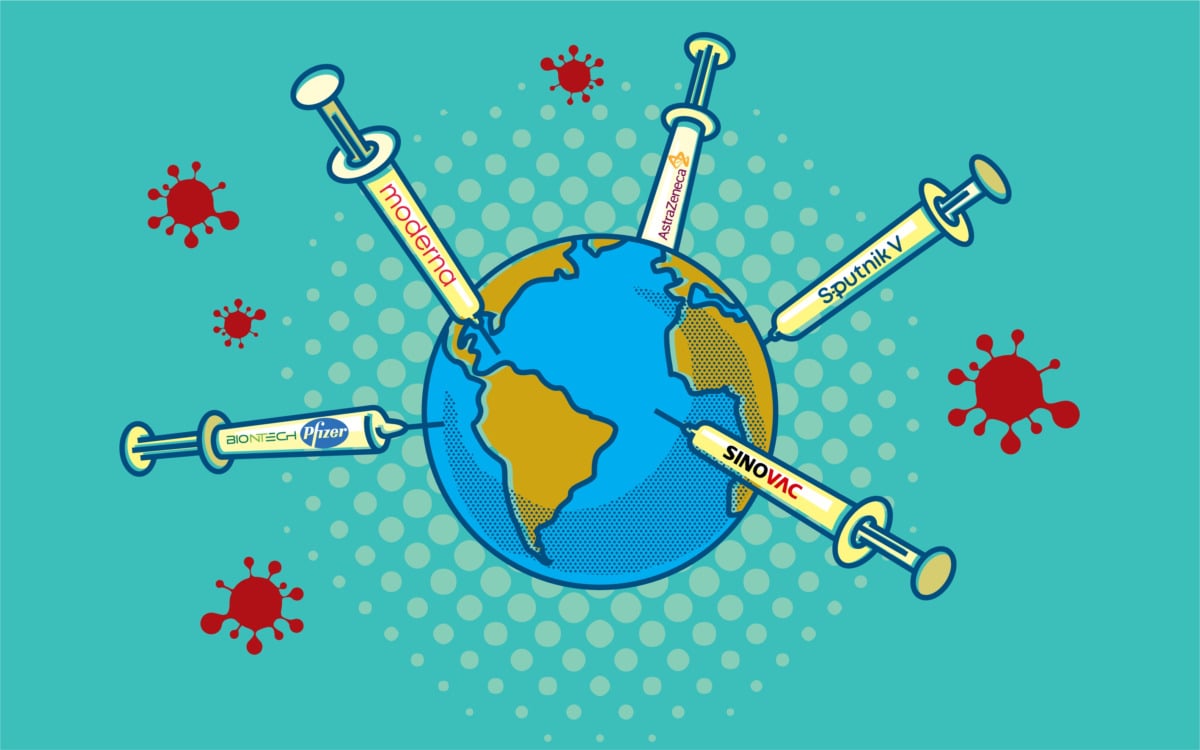You are reading Labiotech’s weekly roundup of the latest biotech news.
Korro Bio and Frequency Therapeutics close merger
Last Friday, Korro Bio announced the completion of the previously announced business combination between Frequency Therapeutics, Inc. and the entity formerly known as Korro Bio. The combined company will now operate under the name Korro Bio, Inc.
Immediately prior to the merger, Korro also completed a $117 million private placement. The post-transaction cash of approximately $170 million is set to fund operations and multiple potentially value-creating milestones into 2026, including advancing its lead product candidate in alpha-1 antitrypsin deficiency (AATD) through a clinical milestone, progression of additional product candidates from the pipeline into the clinic, and demonstrating applicability of the RNA editing platform into several additional tissue types.
Lexeo Therapeutics’ $100 million IPO
On November 2, genetic medicine company Lexeo Therapeutics announced the pricing of its initial public offering (IPO) of 9,090,910 shares of common stock at a price to the public of $11.00 per share. The gross proceeds to Lexeo from the offering are expected to be approximately $100 million, with underwriters also having 30 days to purchase up to an additional 1.3 million shares of common stock at the same price. This was a significant drop on the anticipated share price range of $13 to $15 that Lexeo set out in a Securities and Exchange Commission filing the day before the announcement.
Gate Bioscience emerges from stealth with new class of small molecule therapeutics
Gate Bioscience exited stealth last week with a $60 million series A funding round to create a new class of medicines called Molecular Gates. Molecular Gates are small molecules that eliminate disease-causing extracellular proteins, which are drivers of many human diseases, ranging from inflammatory conditions to neurodegenerative diseases to several cancers. Gate’s small molecules bind to the secretory translocon and set up a “gate” that recognizes and stops a specific, disease-causing protein from exiting, while other, non-targeted proteins are still able to move through the secretory translocon normally. With nowhere to go, the blocked protein is redirected to be degraded instead of secreted.
Imagine Pharma secures $32.5 million in series A funding
On October 31, Imagine Pharma announced that it had raised a $32.5 million series A round, with an initial traunch of $10 million, bringing its total funding to date to $40 million. The funding will be used to advance the company’s priority programs in regenerative medicine, oral delivery, and therapeutics. The company’s work revolves around a novel polypeptide that it discovered, called IMG-1, which has led to significant scientific achievements that promise first-in-kind treatments across multiple underserved disease states.
Memo Therapeutics secures CHF 25 million ($27.76 million)
Last week, Memo Therapeutics based in Switzerland made headlines with the breaking news of the successful closure of a CHF 25 million ($27.76 million) series C financing round, led by Pureos Bioventures. The proceeds will go towards the company’s efforts to complete the phase 2 clinical development of its antibody, known as AntiBKV, which is designed to combat BK polyomavirus (BKV) infections in kidney transplant recipients. The funds will also facilitate the scaling up of Chemistry, Manufacturing, and Controls (CMC) operations for AntiBKV in preparation for phase 3 trials and potential market introduction, as the company anticipates phase 2 clinical data in 2024. Furthermore, the financing will advance the company’s existing antibody pipeline.
ProJenX announces initial closing of $15 million series A Financing
ProJenX announced the initial closing of a $15 million series A financing on November 2, led by Medical Excellence Capital, which also led the company’s seed financing round and created ProJenX in collaboration with Project ALS and researchers at Columbia University. The funds will go towards the continued development of ProJenX’s lead compound, prosetin, for the treatment of ALS. At the same time, ProJenX also announced the appointment of Rick Hartz to its board of directors, who is currently senior vice president of Global Pharma & Human Health Business Development at Merck & Co.
Amyl Therapeutics receives €5 million ($5.3 million) in additional funding
On Tuesday, biotech Amyl Therapeutics captured the spotlight with breaking news, announcing the successful securing of €5 million ($5.3 million) in additional funding from long-term investors Merieux Equity Partners and Noshaq, together with Mr Evren Ucok as a new investor. The company also obtained €6.1 million ($6.4 million) in grants and as a non-dilutive financing from the Walloon region. The €5 million ($5.3 million) supplementary funding will be used in the development of a strong preclinical proof-of-concept for Amyl’s lead therapeutic candidates by mid-2024, to treat NDDs caused by amyloid fibrils, and the move towards clinical development in AL amyloidosis.
Lilly to acquire Beam’s opt-in rights to Verve Therapeutics’ base editing programs
Also in the news, biotech Beam Therapeutics announced last week that Lilly had agreed to acquire certain rights under Beam’s amended collaboration and license agreement with Verve Therapeutics. This includes Beam’s opt-in rights to co-develop and co-commercialize Verve’s base editing programs for cardiovascular disease, which includes programs targeting PCSK9, ANGPTL3 and an undisclosed liver-mediated, cardiovascular target. Under the terms of the agreement, Beam will receive a $200 million upfront payment and $50 million equity investment, and the company is also eligible to receive up to $350 million in potential future development-stage payments.
Apnimed’s new joint venture with Shionogi
On October 31, Apnimed said it was launching a new joint venture with Japanese pharmaceutical company Shionogi, with a $150 million transaction carried out to support early and clinical-stage pipeline development in obstructive sleep apnea (OSA) and related sleep disorders. The aim of the newly formed joint venture, called Shionogi-Apnimed Sleep Science, is to find oral pharmacologic solutions for people who cannot use or tolerate current therapies, with an initial focus on accelerating the discovery, preclinical and clinical development of novel pharmacologic solutions designed to address the complex pathology of OSA.
Bristol Myers Squibb to acquire drug asset from Orum Therapeutics
Also in the news, Orum Therapeutics announced on Monday that it had entered into a definitive agreement for Bristol Myers Squibb to acquire the biotech company’s ORM-6152 program – a first-in-class, anti-CD33 antibody-enabled GSPT1 degrader that has received clearance from the U.S. Food and Drug Administration (FDA) for a phase 1 trial for the treatment of patients with acute myeloid leukemia or high-risk myelodysplastic syndromes. Bristol Myers Squibb has acquired the program for an upfront payment of $100 million, with Orum eligible to receive milestone payments for a total of $180 million.
Aldeyra Therapeutics to partner with AbbVie to develop and commercialize reproxalap
On November 1, Aldeyra Therapeutics said that it had entered into an exclusive option agreement with AbbVie. The agreement means that AbbVie has the option to acquire a co-exclusive license to develop, manufacture, and commercialize reproxalap in the U.S., as well as an exclusive license to develop, manufacture, and commercialize it outside of the U.S.. If AbbVie chooses to exercise this option, Aldeyra will receive a non-refundable option fee of $1 million and an upfront payment of $100 million. Furthermore, under the agreement, Aldeyra would be eligible to receive up to $300 million in regulatory and commercial milestone payments, including a $100 million milestone payment upon FDA approval of reproxalap for dry eye disease.
Biotheus enters into strategic partnership with BioNTech
Breaking news emerged on Monday as Chinese biotech startup Biotheus announced that it had entered into an exclusive global license and collaboration agreement with BioNTech, which will see Biotheus receive an upfront payment of $55 million, and be eligible to receive additional development, regulatory and sales milestone payments potentially totaling over $1 billion. Under the agreement, BioNTech will be developing, manufacturing and commercializing PM8002 globally for ex-Greater China, with Biotheus retaining the rights to exploit PM8002 in Greater China. PM8002 is currently being tested in phase 2 studies in China to evaluate the efficacy and safety of the candidate as a monotherapy or in combination with chemotherapy in patients with advanced solid tumors.
Cellectis’ collaboration agreement with AstraZeneca
On November 1, Cellectis announced that it is set to receive an equity investment of up to $220 million, and a $25 million upfront payment – with potential for additional milestones, plus tiered royalties – as part of a collaboration agreement with AstraZeneca. The agreement aims to accelerate the development of next-generation therapeutics in areas of high unmet need, including oncology, immunology and rare diseases. 25 genetic targets have been exclusively reserved for AstraZeneca, from which up to 10 candidate products can be explored for development. AstraZeneca then has the option for a worldwide exclusive license on the candidate products, to be exercised before IND filing.
CStone to partner with 3SBio
CStone Pharmaceuticals made the news on November 1 when the biotech announced a strategic partnership and exclusive licensing agreement with Shenyang Sunshine Pharmaceutical Co., Ltd. – a subsidiary of 3SBio. The agreement says that CStone will grant 3SBio exclusive rights for the development, registration, manufacturing, and commercialization of nofazinlimab – an anti-PD-1 antibody – in mainland China, with CStone retaining the rights to the drug outside of mainland China. CStone will receive 60 million RMB ($8.24 million) upfront, and nearly 100 million RMB ($13.73 million) in milestone payments, as well as additional payments.
Positive results in largest pivotal phase 3 trial of oral antibiotic for uncomplicated gonorrhea
In collaboration with Innoviva Specialty Therapeutics, Global Antibiotic Research & Development Partnership (GARDP) announced On November 1 that zoliflodacin – a first-in-class antibiotic – met its primary endpoint in a global pivotal phase 3 clinical trial. Study investigators found that oral zoliflodacin demonstrated statistical non-inferiority of microbiological cure at the urogenital site when compared to treatment with intramuscular (IM) injection of ceftriaxone and oral azithromycin, a current global standard of care regimen. In the study, zoliflodacin was found to be generally well-tolerated, and there were no serious adverse events or deaths recorded in the trial. This was the first study to address a World Health Organization priority pathogen that has been sponsored and led by a non-profit organization.
Disappointing phase 2 results for Tonix Pharmaceuticals’ for MDD drug
On October 31, Tonix Pharmaceuticals said that its phase 2 proof-of-concept UPLIFT study of TNX-601 ER (tianeptine hemioxalate extended-release tablets) in patients with major depressive disorder (MDD) did not achieve clinical or statistical significance on the primary efficacy endpoint. Efficacy was assessed using the Montgomery-Åsberg Depression Rating Scale (MADRS) to measure any potential change in patients’ depression severity from baseline. Based on these results, Tonix is now discontinuing the development of TNX-601 ER.
Infex Therapeutics successfully completes phase 1 trial for Pa infections in NCFB patients
Last week in the news, biotech Infex Therapeutics announced that it had successfully completed dosing in its phase 1 study for RESP-X, an anti-virulence therapy to treat pseudomonas aeruginosa (Pa) infections in patients with non-cystic fibrosis bronchiectasis (NCFB). No serious or adverse events or infusion reactions were reported, and pharmacokinetics was dose-linear across all four dose escalations. RESP-X is a first-in-class immune infection antibody in-licensed from Japanese pharma company Shionogi. Following the positive data from this study, Infex has now initiated a phase 2a dose-ranging study for the therapy.
Cancer drug could be used to treat inflammatory diseases, researchers find
In a study published last week in the Journal of Clinical Investigation, researchers from the University of Cambridge discovered that a cancer drug in the final stages of clinical trials could also offer hope for the treatment of a wide range of inflammatory diseases, including gout, heart failure, cardiomyopathy, and atrial fibrillation. The researchers managed to identify a molecule known as PLK1, which plays a key role in triggering inflammation in response to materials in the body seen as potentially harmful. When they treated mice that had developed inflammatory diseases with a PLK1 inhibitor, they showed that it prevented the runaway inflammatory response, at a much lower dose than would be required for cancer treatment. The researchers are now planning to test its use against inflammatory diseases in clinical trials.
Researchers discover antibodies that target resistant bacteria
Researchers at the German Center for Infection Research (DZIF), the University Hospital Cologne, the Helmholtz Centre for Infection Research in Braunschweig, and the University Medical Center Hamburg-Eppendorf have discovered antibodies that could lead to a highly potent treatment option for acute and chronic infections with Pseudomonas aeruginosa – an antibiotic-resistant bacteria that can lead to complicated lung and bloodstream infections. In their study, the researchers investigated whether the approach of isolating and recombinantly expressing broadly neutralizing antibodies from human immune cells can be used to develop new therapies against bacterial infections. They eventually ended up finding monoclonal antibodies in the blood samples of some cystic fibrosis patients that are able to neutralize the virulence of P. aeruginosa.
Researchers uncover new targets for breast cancers resistant to standard therapies
Published last week in Nature Communications, researchers at MUSC Hollings Cancer Center believe that some drugs already approved by the FDA, or currently in clinical trials, could be repurposed for certain breast cancer patients whose cancer has become resistant to standard therapies. The team focused on estrogen receptor positive (ER-positive) breast cancer, which may be treated with hormone therapy after surgery to prevent the cancer from returning or, if the cancer has already spread, it may be used to slow or stop its spread. CDK4/6 inhibitors may also be used at the same time, or afterwards, but some patients find that their cancer develops resistance to both hormone therapy and CDK4/6 inhibitors. Ultimately, the researchers showed that targeting epidermal growth factor receptors (EGFR), phosphodiesterase, or using PARP inhibitors, would overcome the cancer’s resistance to standard therapies.
Online partnering event with academia
Partner with academic leaders around sustainable materials research






















No Comments
Leave a comment Cancel